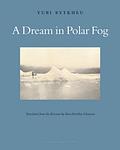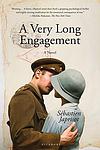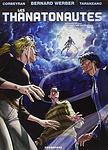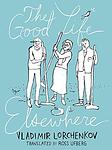The Greatest Russian, French "Fiction" Books Since 1990
Click to learn how this list is calculated.
This list represents a comprehensive and trusted collection of the greatest books. Developed through a specialized algorithm, it brings together 286 'best of' book lists to form a definitive guide to the world's most acclaimed books. For those interested in how these books are chosen, additional details can be found on the rankings page.
Genres
Countries
Date Range
Reading Statistics
Click the button below to see how many of these books you've read!
Download
If you're interested in downloading this list as a CSV file for use in a spreadsheet application, you can easily do so by clicking the button below. Please note that to ensure a manageable file size and faster download, the CSV will include details for only the first 500 books.
Download-
1. The Elementary Particles by Michel Houellebecq
"The Elementary Particles" is a provocative novel that explores the lives of two half-brothers, one a molecular biologist and the other a disenchanted teacher, against the backdrop of late 20th-century France. The narrative delves into their personal struggles and emotional turmoil, resulting from their dysfunctional upbringing by a self-absorbed, hedonistic mother. Throughout the novel, the author uses their stories to critique contemporary society, touching on themes such as sexual liberation, consumerism, and the decline of traditional values. The book also delves into the implications of scientific advancements, particularly in the field of molecular biology.
-
2. Platform by Michel Houellebecq
"Platform" is a provocative novel that explores the intersections of sex, business, and terrorism. The protagonist, a middle-aged man working in the French Ministry of Culture, embarks on a journey to Thailand after the death of his father. While there, he falls in love with a travel executive and they start a business capitalizing on sex tourism. However, their venture is violently disrupted by an extremist group, leading to tragic consequences. The novel is a critique of Western consumerism and a commentary on the clash between Western and Islamic cultures.
-
3. Suite Française by Irène Némirovsky
"Suite Française" is a two-part novel set during the early years of World War II in France. The first part, "Storm in June," follows a group of Parisians as they flee the Nazi invasion. The second part, "Dolce," shows life in a small French village under German occupation. The novel explores themes of love, loss, and survival, and provides a unique perspective on life in France during the war. The book was written during the war but was not discovered and published until many years later.
-
4. The First Man by Albert Camus
"The First Man" is a semi-autobiographical novel that explores the life of a man named Jacques Cormery, who grows up in poverty in Algeria, loses his father at a young age, and struggles with his relationship with his illiterate mother. The narrative delves into themes of identity, memory, and the human condition, as Jacques attempts to understand his past and his father's life, while simultaneously grappling with the harsh realities of colonial Algeria. Despite the challenges, Jacques remains determined to rise above his circumstances through education and personal growth.
-
5. The Clay Machine-gun by Victor Pelevin
"The Clay Machine-gun" is a surreal and complex novel that explores the nature of reality and illusion. The story is set in post-Soviet Russia and follows a protagonist who has multiple identities, including a poet in 19th-century Russia, a 20th-century psychiatric patient, and a 21st-century advertising executive. The narrative moves between these identities and realities, blurring the lines between them and creating a layered and philosophical exploration of Russian society, identity, and the human psyche.
-
6. Happy Moscow by Andrey Platonov
"Happy Moscow" is a satirical novel set in the Soviet Union during the height of Stalinist rule, following the life of a young woman, Moscow Chestnova, who is named after the capital city. Despite the harsh realities of life under an authoritarian regime, she maintains a positive and optimistic outlook, symbolizing the Soviet Union's propaganda that promoted an image of a happy and prosperous society. The novel, through its characters and their experiences, explores the paradoxes and contradictions of the Soviet society, challenging the official narrative of happiness and prosperity.
-
7. Soul and Other Stories by Andrey Platonov
"Soul and Other Stories" is a collection of short stories that delve into the human condition and the struggle for identity in a world filled with political and social upheaval. The stories are set in a variety of contexts, from the harsh landscapes of Central Asia to the chaos of the Russian Revolution. The characters are often faced with existential crises, grappling with questions of purpose, meaning, and morality. The narrative is marked by a unique blend of philosophical inquiry, poetic prose, and a deep sense of empathy for the human plight.
-
8. Child 44 by Tom Rob Smith
In a 1950s Soviet Union gripped by fear and paranoia, Leo Demidov, a dedicated officer of the state security agency, is faced with a chilling reality: a series of brutal child murders that the government refuses to acknowledge. As Leo defies his superiors and embarks on a dangerous investigation, he becomes entangled in a web of political intrigue and personal danger, risking everything to uncover the truth and protect those he loves. "Child 44" is a gripping thriller that explores the dark underbelly of a repressive regime and the resilience of one man determined to bring justice to a society plagued by secrets.
-
9. The Life of Insects by Victor Pelevin
"The Life of Insects" is a surreal novel that explores the complexities of post-Soviet Russia through the lens of a bizarre seaside community of humans who transform into various types of insects. The narrative unfolds through a series of interconnected stories that delve into the characters' struggles, dreams, and fears, serving as a metaphor for the human condition. The book provides a satirical commentary on society's ills, touching on themes of capitalism, corruption, and the search for identity in a rapidly changing world.
-
10. Whatever by Michel Houellebecq
"Whatever" is a satirical novel that explores the life of a depressed and disillusioned computer programmer working for a software company in Paris. The protagonist's life is characterized by his cynicism and indifference towards his job, his failed relationships, and society at large. His only relief comes from his philosophical musings about life and the human condition. The novel is a bleak critique of modern society and the isolation and alienation brought about by technology and capitalism.
-
11. Medea And Her Children by Lyudmila Ulitskaya
"Medea And Her Children" by Lyudmila Ulitskaya is a powerful and emotionally charged novel that delves into the complex relationships between a mother and her children. Set in Soviet Russia, the story follows the lives of three generations of women as they navigate the challenges of love, sacrifice, and the oppressive political climate. Through vivid and compelling storytelling, Ulitskaya explores the universal themes of family, loyalty, and the enduring strength of a mother's love.
-
12. The Time: Night by Ludmila Petrushevskaya
The book is a stark portrayal of the struggles faced by a multi-generational family living in the cramped quarters of a Moscow apartment during the twilight years of the Soviet Union. The narrative is driven by the matriarch, a poet who is both resilient and weary, as she navigates the complexities of caring for her mentally unstable daughter and her neglected grandson. The story delves deep into themes of maternal sacrifice, poverty, and the relentless passage of time, painting a grim picture of domestic life and the burdens of womanhood in a society that is as unforgiving as it is oppressive.
-
13. The Elegance of the Hedgehog by Muriel Barbery
The novel is a profound contemplation of life as seen through the eyes of two female protagonists: a 54-year-old concierge and a precocious 12-year-old girl, both living in the same upscale Parisian apartment building. The concierge, who conceals her intelligence and passion for literature and philosophy from the wealthy tenants, and the girl, who plans to commit suicide on her 13th birthday due to her disillusionment with the world, form an unlikely friendship. Their lives are forever changed when a wealthy Japanese man moves into the building.
-
14. Hurramabad by Andrei Volos
"Hurramabad" is a gripping and thought-provoking novel set in contemporary Russia. The story follows the lives of three young men who find themselves entangled in a web of corruption, violence, and political intrigue in the city of Hurramabad. As they navigate through the complexities of power and loyalty, the characters are forced to confront their own moral dilemmas and make difficult choices that will shape their futures. With its vivid portrayal of a corrupt society and its exploration of themes such as friendship, love, and the pursuit of justice, "Hurramabad" offers a compelling and immersive reading experience.
-
15. You Cried Bitterly In Your Sleep by Yuri Kazakov
The book is a collection of short stories that delve into the complexities of human emotions and relationships, set against the backdrop of Soviet Russia. Through a series of poignant narratives, the author explores themes of love, loss, and the struggle for personal identity amidst societal expectations. The characters in these stories confront their deepest fears and desires, often finding themselves in situations that challenge their moral compass and force them to reckon with the harsh realities of their lives. The title story, in particular, captures the essence of the collection, depicting a moment of vulnerability and the profound impact of dreams on one's waking life.
-
16. Riwan, Ou Le Chemin De Sable by Ken Bugul
"Riwan, Ou Le Chemin De Sable" by "Ken Bugul" is a compelling novel that follows the life of Riwan, a young woman who embarks on a journey of self-discovery. Set in Senegal, the book delves into themes of identity, cultural clashes, and the challenges faced by African women in a patriarchal society. Through Riwan's personal experiences and encounters with different people, the novel explores the complexities of love, desire, and the pursuit of happiness. It is a poignant and thought-provoking story that offers a unique perspective on African society and the resilience of its people.
-
17. Out Of The Dark by Patrick Modiano
In "Out of the Dark," the narrative unfolds around a man's introspective journey into his past, where he reflects on a transient and intense romance with a mysterious woman named Jacqueline. The story is set against the backdrop of post-war Paris, a city that mirrors the protagonist's feelings of dislocation and search for identity. As he revisits old haunts and recalls the enigmatic figures from his youth, the man grapples with the ephemeral nature of memory and the elusive quest for a sense of belonging. The novel weaves a haunting tale of love, loss, and the shadows that linger long after the people and moments have vanished into the dark recesses of time.
-
18. A Dream In Polar Fog by Yuri Rytkheu
"A Dream In Polar Fog" is a captivating and poignant tale that follows the journey of John MacLennan, a Scottish whaler who becomes stranded in the Arctic. As he navigates the harsh and unforgiving landscape, MacLennan encounters the indigenous Chukchi people and forms a deep bond with a young Chukchi boy named Khariton. Through their shared experiences and cultural exchange, the novel explores themes of identity, survival, and the power of human connection amidst the backdrop of the Arctic wilderness.
-
19. Empire Of The Ants by Bernard Werber
In this novel, readers are plunged into a fascinating and complex world beneath their feet, where an ant civilization thrives with its own sophisticated society, technology, and culture. The story intertwines the lives of these ants with the human world, particularly through the experiences of a family that inherits a mysterious apartment in Paris, which hides secrets linked to the ant empire. As the narrative unfolds, the book explores themes of coexistence, the nature of intelligence, and the intricate balance of ecosystems, challenging the reader to consider the world from an entirely different perspective and to question humanity's place within the grand scheme of life.
-
20. A Very Long Engagement by Sebastien Japrisot
The novel is a poignant exploration of love and perseverance set against the backdrop of World War I. It follows a young Frenchwoman who refuses to accept the official story that her fiancé has died on the battlefield. Despite being told he was executed for self-mutilation to escape military service, along with four other condemned soldiers, she embarks on a relentless quest to discover the truth. Her journey reveals a tangled web of deceit, cover-ups, and unexpected alliances, as she holds onto hope that her beloved is still alive. Through her unwavering determination, the narrative delves into the horrors of war and the enduring power of love.
-
21. All The World's Mornings by Pascal Quignard
The book is a historical novel that delves into the life of the 17th-century French composer and violist Monsieur de Sainte Colombe and his relationship with his two daughters, as well as the famous musician Marin Marais. After the death of his wife, Sainte Colombe retreats into his music and his garden, seeking solace and meaning in his solitary existence. His passion for music leads him to reject the court's opulence and the advances of society. The narrative explores themes of artistry, mentorship, and the search for perfection as it follows the complex dynamics between the reclusive Sainte Colombe, his protégé Marais, and the haunting presence of the past that reverberates through their music.
-
22. Le Passeur De Lumière by Bernard Tirtiaux
The novel tells the story of Nivard de Chassepierre, a master glassmaker in the Middle Ages, who embarks on a journey of self-discovery and artistic fulfillment. Tasked with creating a magnificent stained glass window, he faces numerous challenges, including the rigid constraints of his era, the complexities of his craft, and the tumultuous backdrop of social and political unrest. As he pursues his passion for creating light-infused masterpieces, Nivard must navigate the intricacies of human relationships and the pursuit of excellence in his art, all while striving to leave a lasting legacy through the beauty and transcendence of his work.
-
23. Les Thanatonautes by Bernard Werber
The book explores the adventures of a group of pioneering scientists who embark on an experimental journey to map the realm of death, which they term "Thanatonautes." By inducing near-death experiences, they navigate through successive levels of the afterlife, each with its own challenges and landscapes, in an attempt to uncover the secrets of what lies beyond life. Their quest for knowledge pushes the boundaries of science and spirituality, leading to profound insights about the human soul and the mysteries of existence, while also raising ethical and philosophical questions about the consequences of tampering with the unknown.
-
24. Les Racines Du Mal by Maurice G. Dantec
The book is a dark and complex thriller set in the near future, where a series of gruesome murders has gripped Europe. The narrative follows a troubled detective with a cybernetically enhanced brain as he tracks a serial killer whose crimes are linked to a sinister biotechnology corporation. As the investigation deepens, the detective uncovers a web of conspiracy that challenges the boundaries of human nature and technology, leading to a chilling exploration of the roots of evil and the potential horrors of a post-human world.
-
25. The Good Life Elsewhere by Vladimir Lorchenkov
"The Good Life Elsewhere" is a darkly humorous and satirical novel that follows a group of Moldovan villagers who embark on a chaotic journey to Italy in search of a better life. Through their misadventures, the author exposes the harsh realities of poverty, corruption, and the desperate measures people are willing to take in pursuit of a brighter future. With a blend of absurdity and poignant social commentary, the novel offers a compelling exploration of the human condition and the universal desire for a better life.
Reading Statistics
Click the button below to see how many of these books you've read!
Download
If you're interested in downloading this list as a CSV file for use in a spreadsheet application, you can easily do so by clicking the button below. Please note that to ensure a manageable file size and faster download, the CSV will include details for only the first 500 books.
Download




















